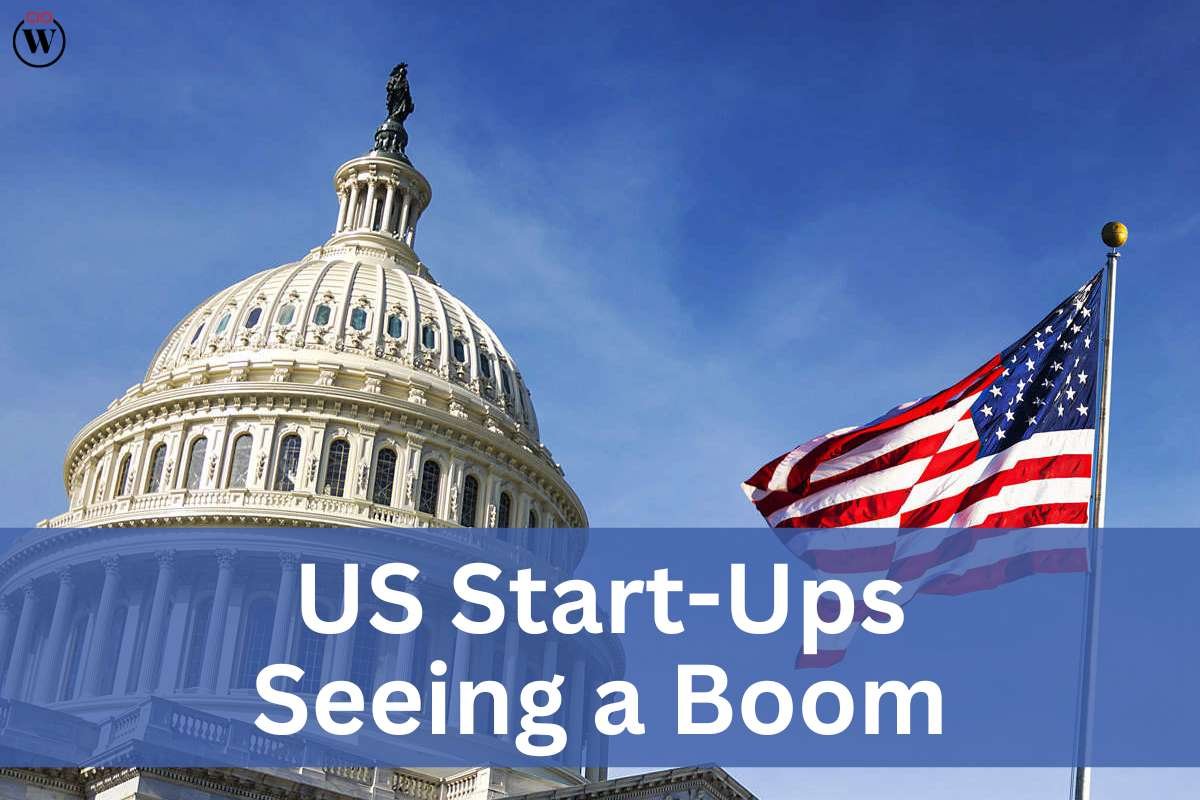As the number of US Start-Ups reaches an all-time high, the Commerce Department today launched SelectUSA, an annual event that brings together investors, innovators, and local leaders. Start-ups and business executives were told by Secretary Gina Raimondo that America was the finest nation to invest in as the conference got underway.
“We have mayors here. We have ambassadors here. We have problem solvers here who want to work with you,” said Raimondo to businesses in attendance.
The U.S. Census Bureau reports that 5.4 million new business applications were submitted in 2021, the most ever and a 53 per cent increase over 2019.
According to Sherman Baldwin, CEO of LCR Capital and adjunct professor at Yale University, the United States is a favourable location for US Start-Ups because of its acceptance of failure and safeguards against it.
“I think it’s critical that failure is an event. It’s not a prognosis,” he said. “Jobs are created when capital is put at risk. And that’s what entrepreneurs do. That’s what venture capital firms do. That is what creates value and what creates jobs and what attracts people to the United States.”
LCR Capital works with international investors who want to make investments in the United States. They are present at this year’s SelectUSA. According to Baldwin, while considering whether to invest, his organisation considers both the quality of the idea and the quality of the person.
What has caused this US Start-Ups boom?
He proceeded by saying that immigrant populations were crucial to America’s ability to remain competitive. He claimed that more than half of Silicon Valley’s so-called “unicorns” — privately held US Start-Ups valued at over $1 billion — were established by immigrants.
“The key to success, in my opinion, is to be able to continue to attract the best and the brightest from around the world,” he said.
The Story of Pacaso
One of those unicorns is Pacaso, a business that advertises that by converting properties into LLCs, it can make owning a second house a reality. While Pacaso manages the architecture, interior decoration, and upkeep, the participants own the actual property.
In the midst of the COVID-19 epidemic, in October 2020, CEO Austin Allison started the company.
“Challenging times present the most opportunity because scarcity is sort of breeds innovation. It forces you to be more resourceful, more creative. And I believe that it makes companies stronger,” said Allison.
Allison said remote work ended up being a major benefit to his startup.
“A lot more people now have the flexibility to work from anywhere, which drove a lot of demand for second homes and second home markets. And that’s really been an accelerant for our business,” he said.
The business has encountered some criticism for its approach of fractional homeownership. The operation of Pacaso was prohibited by a neighbourhood in Napa Valley because they claimed it was akin to a timeshare, which they do not permit. In federal court, Pacaso is suing.
In response to the criticism, Allison stated that there is typically some pushback whenever a business attempts something new.
“I think some pushback is a great sign that a company is on to something big and meaningful,” he said.
But that innovation may be in danger, according to a U.S. Chamber of Commerce spokesperson.
Tom Sullivan’s Bold Statements
Tom Sullivan, the U.S. Chamber of Commerce’s vice president for small company policy, stated, “We’re worried that Washington, D.C., and particularly President Biden’s regulatory agencies are going to kill the geese that are laying the golden eggs of entrepreneurship and US Start-Ups in this country.”
Sullivan cited a proposal made by the Labour Department last year that would alter the distinction between independent contractors and employees. According to the government, anyone who is deemed to be economically dependent on the business would be reclassified as an employee rather than a contractor, giving them access to greater benefits.
Misclassification, according to the Department, “is a serious issue that denies workers’ rights and protections under federal labour standards, promotes wage theft, gives some employers an unfair advantage over law-abiding businesses, and harms the economy overall.”
According to Sullivan, the rule would subject independent contractors to increased regulation.
Before we truly start praising and celebrating small businesses rather than trying to micromanage them and ultimately harming their growth, he said, “We’ve got a long way to go.”
The final version of the rule is expected sometime this spring.









